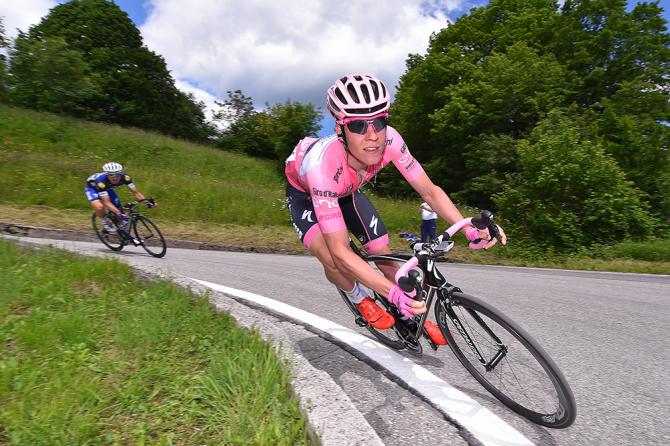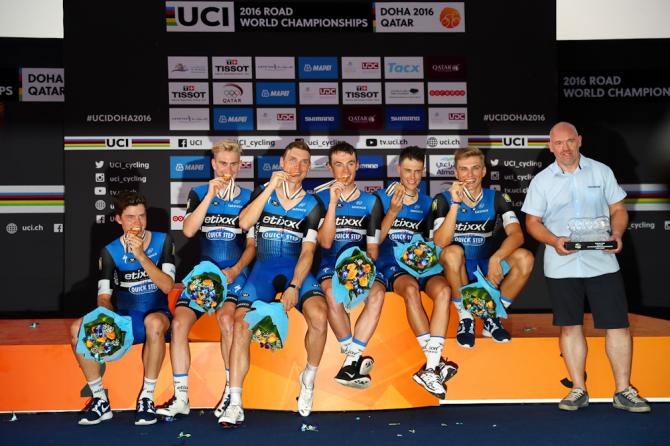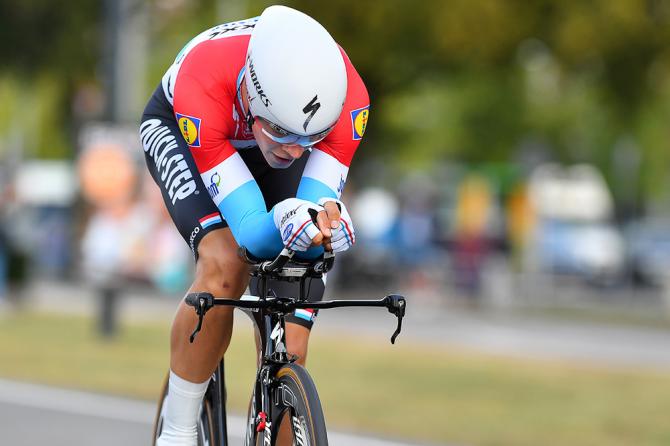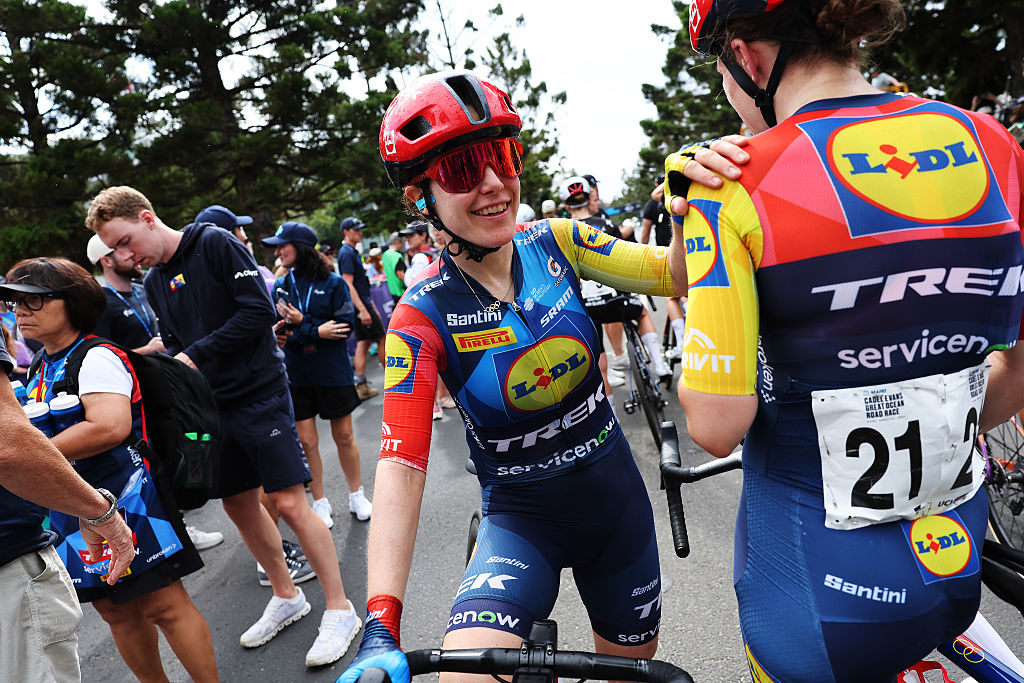Jungels and Etixx-QuickStep grow into Grand Tour contenders
The emergence of Bob Jungels as a Grand Tour contender represents a pivotal moment for Etixx-QuickStep as cycling's most venerable Classics team learns to love three-week races
The latest race content, interviews, features, reviews and expert buying guides, direct to your inbox!
You are now subscribed
Your newsletter sign-up was successful
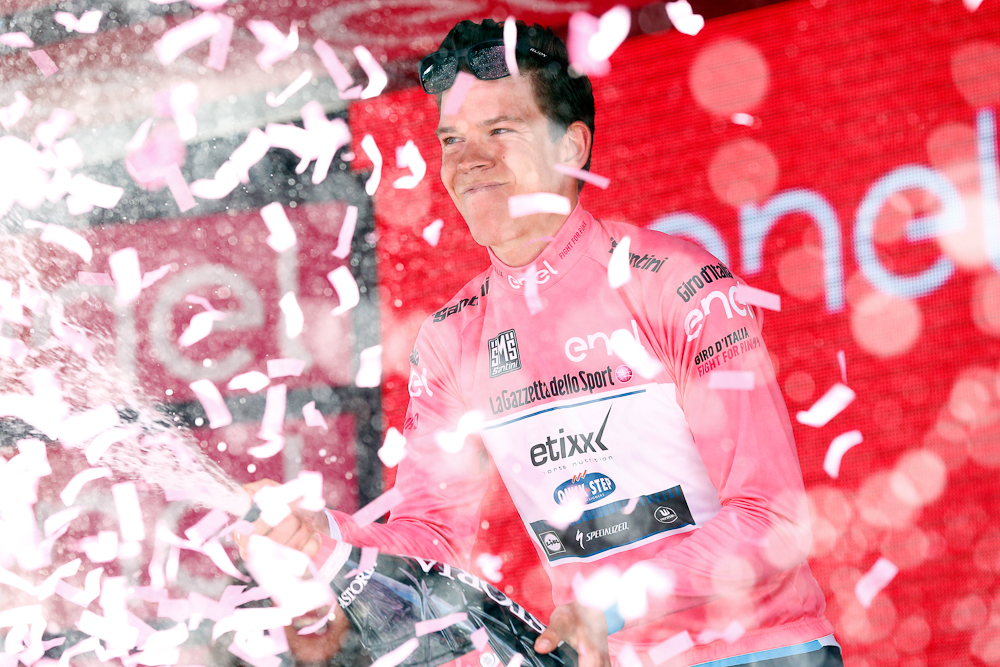

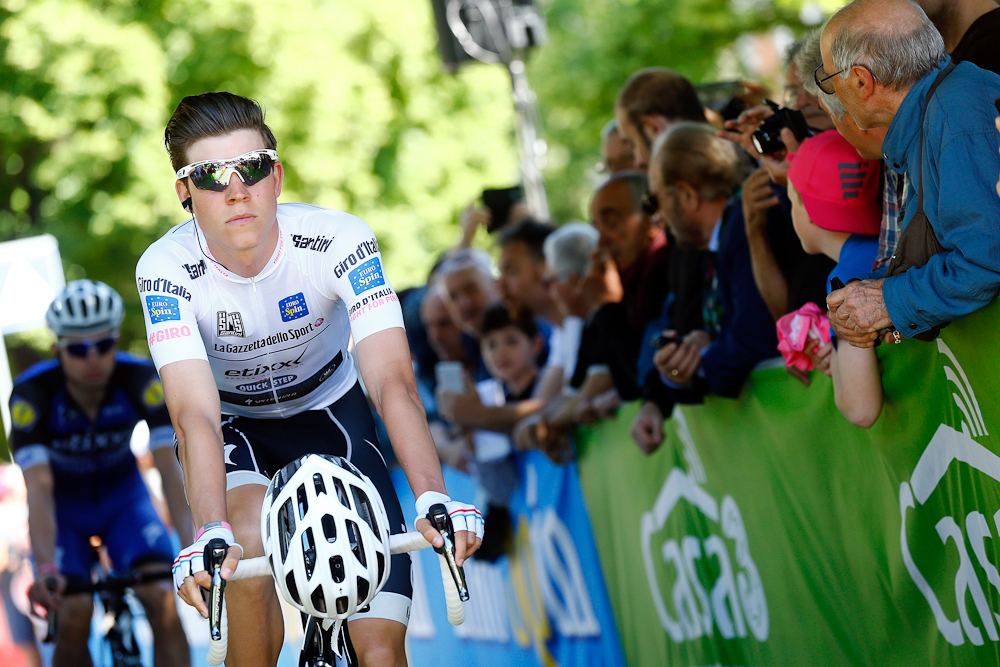
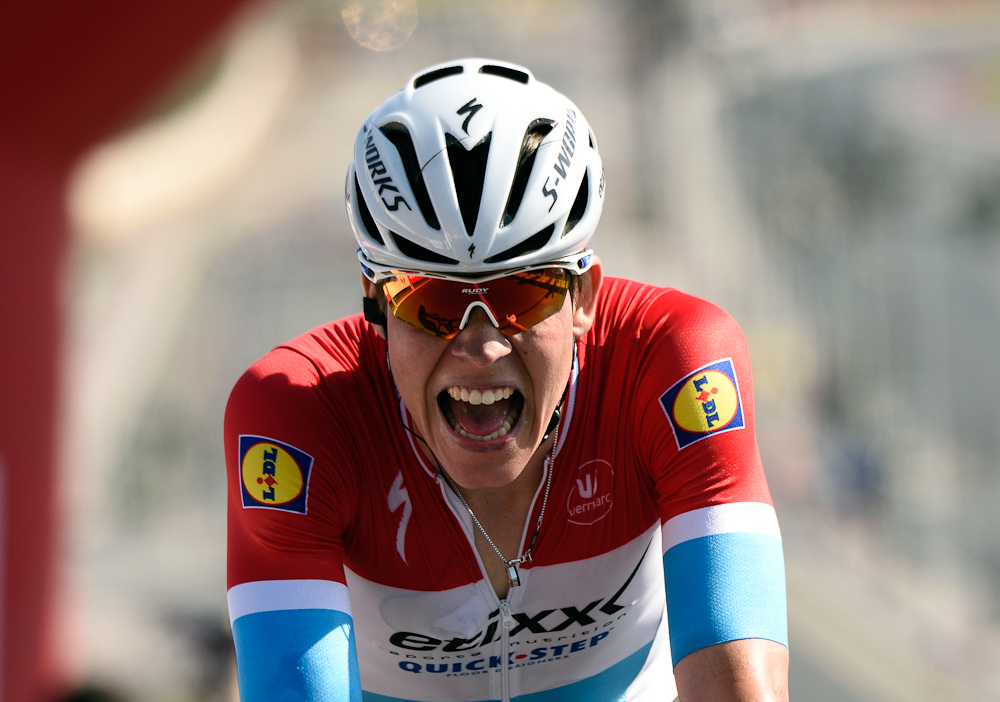
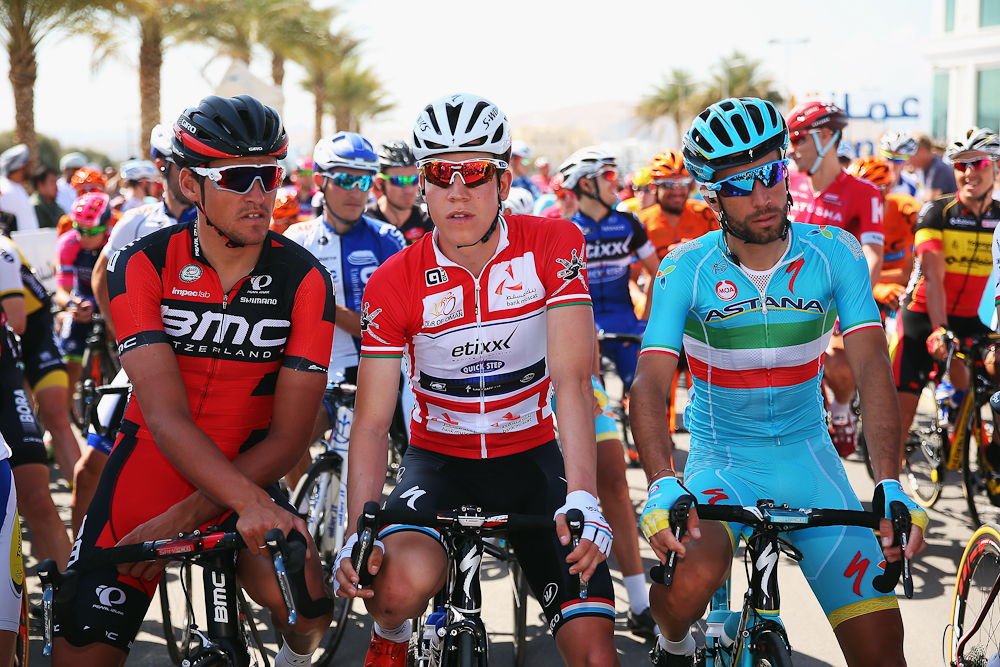
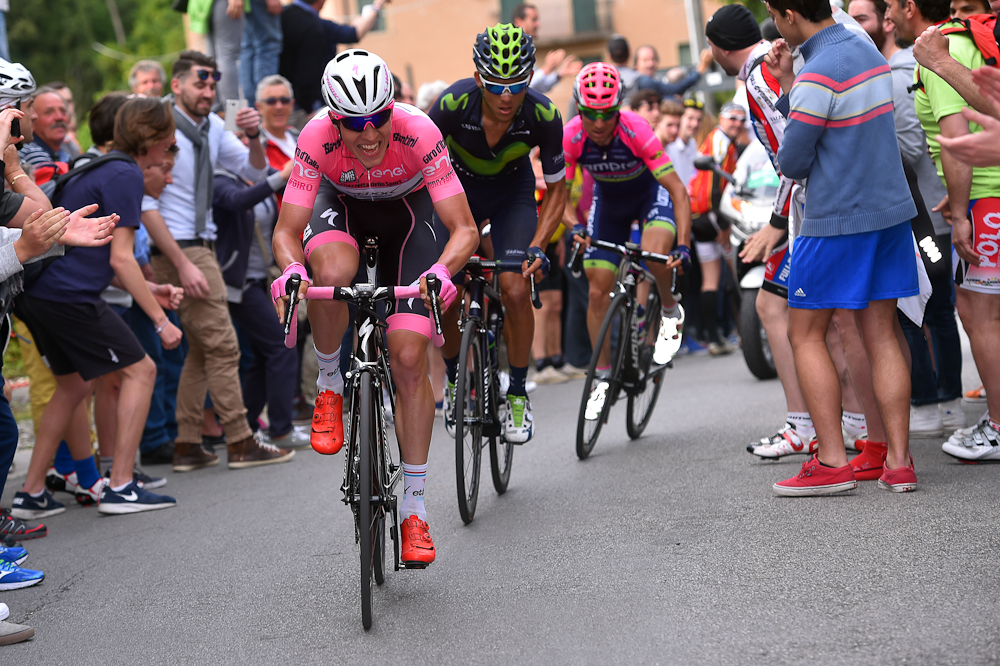
The Grand Tours, or at least their overall classifications, have not historically been a big priority for Etixx-QuickStep. The team's focus comes instead at the Spring Classics, where they have enjoyed huge success, and where the Flemish media inquest is loud, long and soul-searching if they should come away empty-handed in April.
Jungels signs with Etixx-Quickstep
Jungels confirms promise with Tirreno-Adriatico podium
Transfer of the season? The mechanics of Bob Jungels' move to Etixx
Giro d'Italia: Jungels loses pink jersey but shows Grand Tour potential
Jungels: I'm no longer invisible
Bob Jungels on his breakthrough Giro d'Italia - inCycle episode 15
Etixx, conceived by Patrick Lefevere and constructed for a decade around their talisman, Tom Boonen, is held to be the living embodiment of the Flemish cycling 'mentality'. The team’s owner, Zdenek Bakala, is Czech, its origins Italian (in Mapei, from which Lefevere formed the Quick Step team in 2003) and its roster multinational, but it is quintessentially Belgian, or rather, Flemish.
The myth is that the Flemish are far more interested in the muck and nettles of one-day racing in April than in the stage races of high summer. Of course, the Ronde and Roubaix remain the highlight of the year, but Flemish cycling fans have a rich history of supporting their riders in the Grand Tours. That, of course, explains why Eddy Merckx is Eddy Merckx. He won everything, everywhere, but two races in particular have assumed iconic status in his homeland. In 1968 he became the first Belgian to win the Giro, and many argue that the stage win on Tre Cime di Lavaredo was his greatest ever. The following year he ran away with the Tour de France. Merckx also won his fair share of Spring Classics, but it was in the mountains of Italy and France, not on the cobbles of the north – that the legend was born.
Of course Flemish cycling is different, because Flemish topography is different. Boonen has not only been a great rider but also the poster-boy for his generation. Thus, with only so much money available, Lefevere's investment in the Classics represents no more than a judicious cutting of the cloth. Cycling is a business and Boonen's greatness on the kasseien has delivered the sponsors more bang for their (overwhelmingly Belgian) buck.
Keeping up with a changing sport
However, the Boonen years are all but behind us now, though we await his last hurrah in Paris-Roubaix 2017. And as the sport continues to globalise it's unlikely we'll see his like again any time soon. The pre-WorldTour vacuum in which Flemish cycling existed is but a memory, and in order to thrive commercially the likes of Etixx-QuickStep need to be progressive. In essence they need be competitive throughout the year, and most of all they need to be visible at the Grand Tours. This explains why Mark Cavendish and Rigoberto Urán were enlisted in 2013 and 2014 respectively, and why Dan Martin's evolution from Ardennes specialist to GC rider makes sound commercial sense. Everyone agrees that April's a lovely month but it's no longer admissible to build a professional cycling team around it alone.
The latest race content, interviews, features, reviews and expert buying guides, direct to your inbox!
Lefevere's has always been one of the more moneyed teams in cycling, and one of the more prestigious. However, since its inception in 2003 it has delivered its sponsors a single Grand Tour podium, Urán's outstanding Giro of 2014. All of which explains why, at the Tour de France of 2015, Lefevere made it his business to prise Luxemburg's Bob Jungels away from Trek. A year on, his perspicacity has its reward, or at the least the beginnings of it. We always knew Jungels was a class act but his excellence in claiming the maglia bianca at the Giro suggests he might just be the man to lead his new team into the third millennium. Jungels was earmarked as a major talent from an early age. When the Leopard project was born in 2011, main shareholder Flavio Becca stated that one of its primary objectives was to develop young Luxembourgish riders. Specifically he was referring to Jungels, simply because he was so prodigious. He was already winning copiously all over Europe, destined seemingly for the very top.
The hype, at least in part, sprang from the fact that Jungels belongs to a great cycling tradition. Statistically, Luxembourg is the most successful Tour de France country of all. Though its population has increased by a staggering 16 per cent between 2001 and 2011, it still numbers about the same as, say, Sheffield. Luxembourg has only ever won two Olympic medals, and its delegation in Rio numbered 10 people. Conversely, the country can point to four different Tour de France winners and that speaks volumes for cycling's place in its sporting landscape. And, by extension, the level of expectation around Jungels.
“There is a great tradition, and people really follow it,” Jungels says. “There are no big sports teams because we don't have big cities, and nor do we have a great track and field tradition. However, everyone knows the legend of Charly Gaul, and the Schlecks are very important figures for us. Then Kim Kirchen wore the yellow jersey a few years back, and there have been others as well. They've retired now and I seem to be the most successful of the current riders, so it's natural that the spotlight falls on me but I'm used to that and I don't have a problem with it. Such pressure as I feel comes from within, because all I can do is work to become the best rider I can. I don't feel any particular weight of expectation from outside.”
In some respects Jungels is an atypical Luxembourg cyclist. While the country's Tour winners Gaul, Andy Schleck and Nicolas Frantz were all outstanding natural climbers, his strengths lie elsewhere. It's hard to believe there's a more aesthetic rouleur, nor a more accomplished 24-year-old tester. While Andy Schleck's 2007 Giro white jersey was won on the Izoard and the Zoncolan, that of Jungels was rooted in the opening time trial in Holland and developed over 40 fast kilometres in the TT at Chianti. Other consequences of these rides were three unforgettable days in the maglia rosa and a host of new admirers. Better still, Etixx–Quick Step gave a passable impression of a solid, well-drilled GC team. Not only did they look like they knew what they were doing but like they were entirely committed to doing it.
"For me it was a big surprise. I was thinking maybe the top 15, and possibly in the back of my mind the white jersey," says Jungels. "It was not something I was crazy about, but then I took the white jersey on the fourth day. Clearly at that point I was going to try to defend it, and we also had Marcel Kittel in the points jersey. Then Gianluca Brambilla took the maglia rosa, then I did, and so one way or another there was a huge amount going on. I think we gained a lot of momentum as a team, and that was the key to it. If you can get that it tends to carry you along."
There's nothing more ubiquitous in cycling than the post-race interview during which the protagonist thanks his team-mates, and the ubiquity means these things can resemble meaningless corporate platitudes. At the Giro, however, Jungels and co. were very much greater than the sum of their parts. Paradoxically, Kittel's abandon seemed genuinely to galvanise them. His retirement was offset by Brambilla's impressive win – and consequent two days in pink - at Arezzo, and Jungels's continued presence in the white. For the Luxembourger, the esprit de corps they managed to generate was a real change.
"I've never experienced that degree of togetherness before. I'm really proud of what I achieved personally but it honestly was a team effort. The whole puzzle came together and I can't think of anything else I've experienced in cycling which is comparable. I had three days which weren't so good but all things considered it was pretty special," he says.
All in for Italy
It's worth noting that cycling may be a global sport now but the success was due in large measure to the team's Italian core. For Brambilla, Matteo Trentin and Fabio Sabatini the Giro matters greatly and all were highly motivated. Collectively they represented the backbone of the team and the sight of maglia rosa Brambilla working to put his team-mate into pink jersey contention in advance of the time trial was indicative of their unity of purpose.
The one really rough day came on the road to Corvara. On the queen stage of the Giro, the 14th, Jungels cracked on the fearsome Passo Giau. It was the fifth of six Dolomite passes on a day which saw the peloton climb almost 5,500 vertical metres. To be dropped on the Giau is to be acquainted with the dark side, and still more so given that he still had to scale the Falzarego. He lost more than six minutes and slipped from second to 12th on GC. It was a hard lesson but it could have been a lot worse.
"I knew that it was going to be a tough day straight away," he says. "It was 210 kilometres and I'm not a pure climber. I was pleased to have been able to hang on [to the group of general classification leaders] until the penultimate climb. There was no crisis as such and I hadn't expected to be that high up on GC anyway. It was a brutal day but I didn't feel like it was a catastrophe." Jungels rallied in the time trial the following day and his performance in the final week is instructive. Others faded as fatigue set in but he maintained his position, and more. He actually distanced the revelation of the Giro, the brilliant Esteban Chaves, on the last mountain stage, but that in itself isn't the issue. The issue is that Chaves is over two years older than him. The fact that he actually gained six places in that last week speaks volumes for his potential.
- Jungels: I'm no longer invisible
- Bob Jungels on his breakthrough Giro d'Italia - inCycle episode 15
- Transfer of the season? The mechanics of Bob Jungels' move to Etixx
- Giro d'Italia: Shades of Dumoulin about Jungels' defence of pink jersey
Jungels, then, is precociously talented. He's a natural for medium-mountain stage races, and he has already finished on the podium at Tirreno-Adriatico. However, by finishing sixth at the Giro he raised the bar, and the maglia bianca always comes with strings attached. It's a well-trodden path, this, and awe and wonder quickly give way to expectation and responsibility. That in turn begets the inevitable question, the big one about whether he can bridge the gap between the Apennines and the Dolomites. “I think if you have ambitions to ride for GC you have to accept the responsibility. This is a great team and I'm delighted with the choice I made in coming here. I'm sure they will support me 100 per cent in whatever I try to do but I have to earn that by performing. It's always a two-way street.”
With his time trialling excellence it's easy to draw parallels with a young Miguel Indurain. The Spaniard didn't truly take flight before his 25th birthday and Jungels too is tall, strong and modest. Furthermore, just like Indurain he's a natural against the watch. In that sense he's actually a victim of circumstance because stage racing has changed dramatically in recent times. When Indurain won his first Tour in 1991 there were 135km of individual time trials, set against 55 this season. Such a drastic reduction is nonsensical given that it disfigures the race and handicaps the best riders but it remains a matter of fact.
Of course, stage racers like Indurain don't come along very often but the next two years will determine the trajectory of Jungels's career. If he can look after himself at altitude, it's to be hoped that there will still be sufficient time trials for him to be a contender. Not perhaps an Indurain – let's not get carried away – but he has the tools to emulate someone like Abraham Olano, the so-called ‘Indurain lite' who won the Vuelta, plus both road and time trial World Championships.
Like the team he represents, Bob Jungels is only just beginning his Grand Tour journey. It's highly improbable either will be winning a Grand Tour in 2017 but Jungels is young, gifted and smart. With a fair wind and a few better balanced routes, he has plenty of time on his side. All of Luxembourg (and most of Flanders) will be watching this space.
